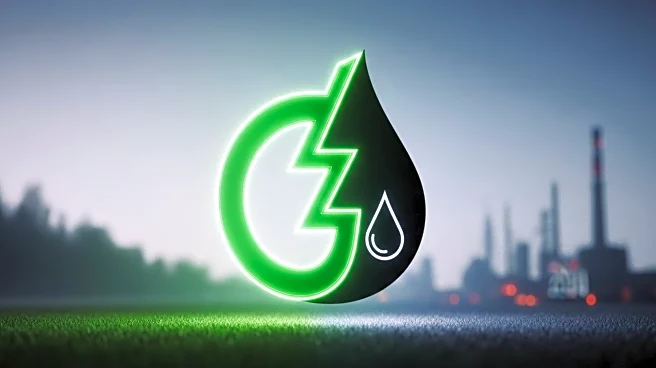What's Happening?
BP has raised its forecasts for oil and gas demand, suggesting that the global net zero target for 2050 may not be met. The company's outlook report estimates that oil use is on track to reach 83 million barrels a day by 2050, an increase from its previous estimate. BP also predicts that natural gas demand could rise to 4,806 cubic meters annually by 2050. The report highlights geopolitical tensions, such as the war in Ukraine and conflicts in the Middle East, as factors intensifying demands around national energy security. BP's chief economist, Spencer Dale, noted that these tensions might lead to a preference for domestically produced energy over imports. Despite growth in renewable energy, oil is expected to remain the largest source of primary global energy supply for the next two decades.
Why It's Important?
BP's revised forecasts underscore the challenges facing the global transition to clean energy. The increased demand for oil and gas suggests that achieving net zero emissions by 2050 may require more aggressive measures. This situation could impact global climate policies and the strategies of energy companies, as they balance the need for energy security with environmental commitments. The report also highlights the potential emergence of 'electrostates,' where countries focus on electrification powered by domestic low-carbon energy. This shift could redefine geopolitical dynamics and influence international trade and energy policies.
What's Next?
BP's outlook may prompt governments and energy companies to reassess their strategies for achieving net zero targets. Policymakers might consider implementing stricter regulations and incentives to accelerate the transition to renewable energy. Additionally, BP's predictions could lead to increased investment in technologies that enhance energy efficiency and reduce emissions. As the global energy landscape evolves, stakeholders will need to navigate complex challenges to balance economic growth with environmental sustainability.
Beyond the Headlines
The implications of BP's forecasts extend beyond energy markets, potentially affecting global economic stability and social equity. As countries prioritize energy security, disparities in access to clean energy could widen, impacting vulnerable populations. The transition to 'electrostates' may also influence cultural and ethical considerations, as societies adapt to new energy paradigms. Long-term shifts in energy consumption patterns could drive innovation in sustainable technologies and reshape global economic structures.









